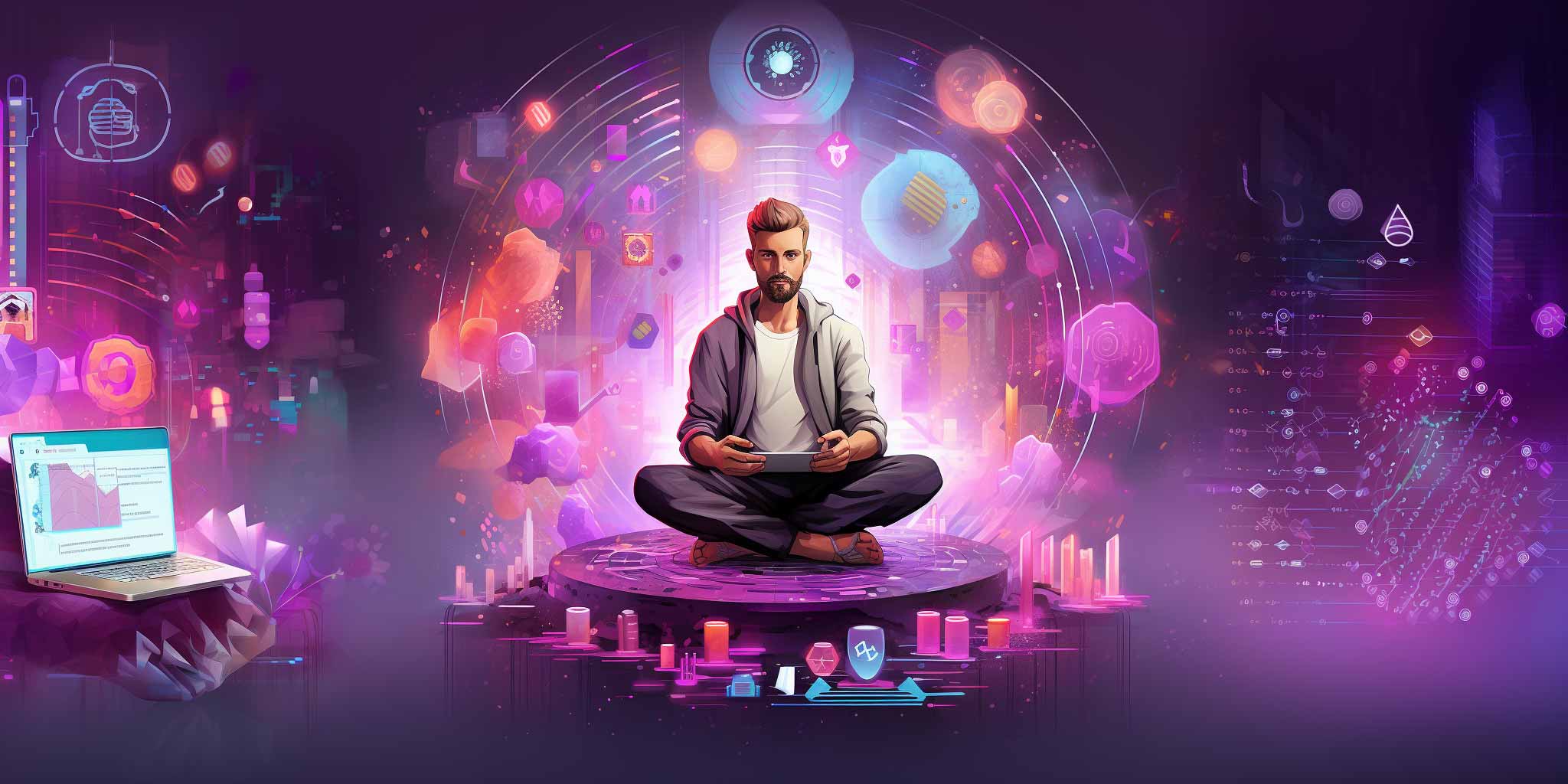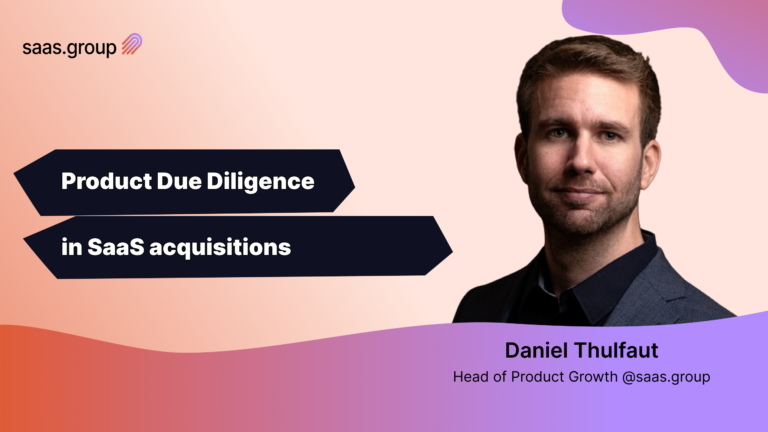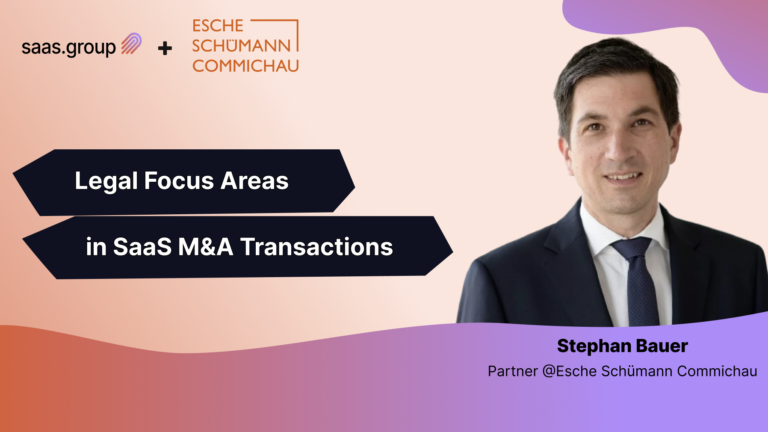Starting a SaaS company is like stepping onto a rollercoaster — thrilling, unpredictable, and sometimes downright daunting. On the saas.unbound podcast, founders open up about their personal well-being and mental health hacks, offering a glimpse into the human side of startup life. They share personal tales of facing moments of loneliness and navigating unexpected challenges. From fostering a supportive community to embracing vulnerability, see some of the tips that helped them during this unpredictable journey.
“I’m a solo founder; while I had a co-founder when I built the agency, he left the company pretty soon.
So both SaaS companies are built solo. And if you’re a solo founder, then who are you talking to about the bad things? And that’s where the community comes in—like a network, a community of similar. I found it to be very helpful.
That is the reason I co-organized SaaS Club Vienna, which doesn’t meet up as often as it could, but it’s still alive. It started like a very informal meetup of 10–15 SaaS founders here in Vienna, where we got to know each other so closely that after a while, we were very open with each other, sharing all the numbers and stuff like that. And that helps a lot because you learn that you have experienced what most of us are going through. Everyone has the same issues at one point. And knowing that and having the support of great people really helps fight the loneliness of the job.
One more thing is that it keeps it real. Social media can often make you compare your business to others, and not in a good way. At these meetups, you actually get to learn about all the ups and downs and apply the learnings to your business.”
Michael Kamleitner, Swat.io / Walls.io
“Mental health and resilience aspects are something that is not easy to achieve. And what was really helpful for me was to have mentors out there, founders that have gone through the same thing one or two years before I have.
I have one or two extremely close other founders that I can call up at any time of the day. We had numerous financing rounds where one of the investors, just the day before we went to the notary, said, Oh, we can actually not invest. And the whole financing round was about to explode and lead us into bankruptcy.
Luckily, we managed to cope with all these situations. So obviously, experiencing these high-stress situations allows you to develop your resilience. But I think looking for other founders in your network is extremely important. So, feel free to reach out and talk if you find yourself in this kind of situation.”
János Moldvay, Adtriba
“I think one of the important aspects for me was that I never felt shame attached to the topic of burnout. I think this is an important mindset shift for most founders and leaders who feel that. The first mindset shift is to get rid of that shame. Burnout for me is like having back pain. You basically suffer from an injury.
So I didn’t spend too long in that situation on my own. I pretty quickly looked for help. Everybody should have somebody to talk to. And if it’s a professional who knows their stuff, that’s wonderful, right? Why not? Even if you don’t have problems, have somebody to talk to and somebody to untangle this strange thing that life is.
You don’t have to be in a burnout situation to do that, right? So I think it’s important to lower the barrier to seeking help, seeking conversations, to opening up about burnout. Because again, if we compare it to back problems, you wouldn’t hold back and feel ashamed for that, and you would probably go seek somebody to talk to about it. So I think that’s the most important thing that I got away with after having burnout.”
Tobias Günther, Entrepreneur / Writer / Mindfulness Teacher, tobias.co
“My hack, to be honest, is just to do a lot of sports. Be conscious of your body, no matter what you like to do, but try to exercise daily. I think it’s pretty basic, but most people don’t do it because they think they don’t have time to work out. But open your phone, go to your phone settings, and look at your average screen time. I’m sure it’s a pretty big number.
And you can spend an hour exercising instead. You can just walk, run, go to the gym, do whatever you please, but do it.
I think it’s also the best way to get better sleep. And with good sleep, you become much happier and more energized. It’s now becoming a hack, but I actually think it’s just like the most basic stuff on earth that we just forget about.”
Guillaume Moubèche, lempire
Entrepreneurship is not for the faint of heart. Learning about the importance of community, mentorship, and destigmatizing mental health struggles early on may save founders from disappointment. By fostering connections, embracing resilience, and breaking the silence surrounding mental health, founders can not only survive but thrive amidst the difficulties of building a business. After all, in the SaaS industry, a supportive network and a resilient mindset can make all the difference.
Check out these and other episodes of saas.unbound podcast with the “solo founder” tag to learn more about the personal journeys of founders and how they overcame their challenges.
Table of Contents
Weekly newsletter
No spam. Just the latest news and articles from the world of SaaS and Acquisitions.




